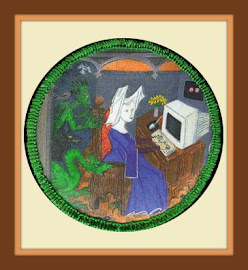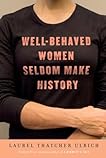For our book group this month, we read Chaim Potok's The Promise. I also read The Chosen. I read these books years ago as a teen-ager and it was great to revisit them. The themes in both are similar. I was especially taken with the inner conflict that the two main characters Danny and Reuven face in trying to reconcile the conflicts they feel between their Orthodox Jewish background and the secular world. Both are intelligent young men who have dedicated their lives to studying the Talmud. But, they also feel drawn to study other things as well: for Danny, Freud is forbidden; for Reuven, his method of understanding the Talmud through text emendation is seen as borderline apostate. By the end of The Promise, neither one has completely managed to incorporate these two somewhat conflicting parts of their intellectual quests into one complete whole, but the tone is optimistic: they are on the right paths for them, they will find a way to meld two disparate worlds within themselves.
After the discussion about the book was over and several of the women had gone, the husband of the host joined us. He talked about his reaction to watching the second half of the PBS documentary on the church, which led to polygamy, and questions of gender and priesthood and on and on. I should have left at 11. I shouldn't have stayed. It was a discussion I didn't want to get into. He described the commentators on the PBS program "pseudo-intellectuals" and "fringe intellectuals." He felt that they didn't accurately represent the rank and file of the church. I'm not sure why he used the qualifier "pseudo". I really loved the talking heads they had on Monday night. And the idea of fringe intellectuals: so negative. Crazy people who are talking about things that don't matter, talking about ideas that no one cares about that have no relevance to anyone. That frustrated me. I haven't seen the second half, but I'm sure, 100%, that my reaction will not be like his.
Then there were conversations about why women don't have the preisthood (with the explanation of the inherent deficiencies of men who need the priesthood to make up for their inherent lack of spirituality), the idea that women are naturally nurturers, etc etc. I made a few contradictory comments, but didn't have the heart to engage in a full on debate.
For one, I have a problem thinking and talking quickly on the spot to make a coherent argument. But, for another, I don't want to let it all out. To be "that woman". To be labeled in some sort of negative way. I know I shouldn't care what others think, but I find it difficult not to. In our ward, I haven't met any intellectually kindred spirits. I have met a lot of great women though. My children play with theirs, and we have good conversations too. I like every single one of the women that were there last night who believe things that I do not. I don't want to make certain beliefs about gender some kind of litmus test for whom I am friends with. But, I also question who I can be really close to in my ward. I came home sad and feeling a little lonely. In my past two wards, I've had all kinds of friends, but those circles have also included women who I feel free to discuss anything with and who have pushed me in intellectually new directions. I will probably grow in other ways with the women in my ward now.
This all ties back to Chaim Potok and finding a place of my own. It's not easy to navigate between disparate worlds. I know my schisms are not nearly as wide as many others', but I long to find a sense of unity and wholeness between Mormon, mother, academic, feminist. This morning, my wonderful neighbor called to see if my kids could come over to play with hers. I gladly dropped them off and headed to the library. When I couldn't find what I wanted, I went to the nearby Barnes and Noble to pick up a copy of Virginia Woolf's A Room of One's Own. I saw it on a compilation of feminist writing recently and added to my list to read. I love the title and long to find my own place, so I decided to treat myself to it.
This all also relates to those who leave the church because they cannot reconcile their intellectual and religious beliefs. I met a woman last week like this--I need to finish writing about that experience--but I always feel sad when a intellectual feels that the church is no longer a good place for them, or when the church feels like that intellectual does not belong in the church. I don't want to have to choose between one side or the other.
Wednesday, May 02, 2007
Chaim Potok and Place
Labels:
Book Group,
Feminism,
Happenings,
LDS Church,
Off the Stacks
Subscribe to:
Post Comments (Atom)












No comments:
Post a Comment